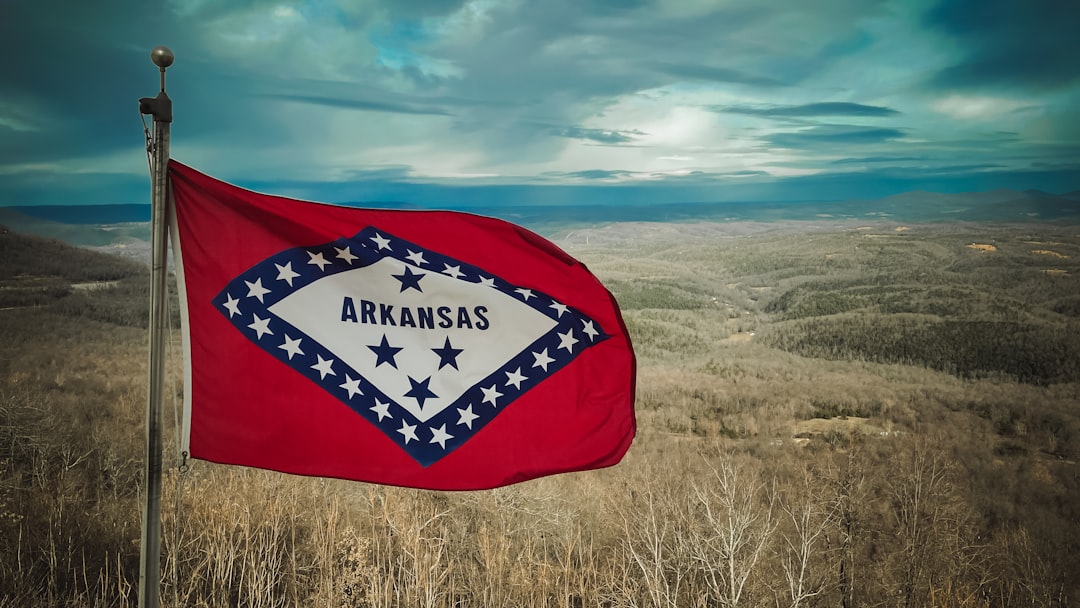Hazing abuse, a widespread issue in educational settings and groups, involves dangerous activities like substance consumption, extreme physical challenges, and psychological manipulation. California's stringent anti-hazing laws offer robust protections, with specialized hazing abuse attorneys crucial for navigating legal complexities and emotional trauma. Arkansas law also provides civil litigation options for damages and punitive awards. Key insights include comprehensive documentation, strategic investigations, and expert testimony. These measures aim to create environments free from hazing practices and hold perpetrators accountable.
In the United States, hazing—a pervasive issue within various organizations, from schools to sports teams—has garnered significant attention due to its severe consequences. California, with its robust legal landscape, has emerged as a pivotal region for addressing hazing abuse, particularly through the work of specialized attorneys. Given the complex nature of these cases, involving both criminal and civil aspects, a thorough understanding of the law is imperative. This article delves into the critical role played by California attorneys specializing in hazing-related litigation, highlighting their expertise and the positive impact they have on holding perpetrators accountable while offering justice to victims, setting a precedent in Arkansas and beyond.
Understanding Hazing: Legal Definition & Common Practices

Hazing, a pervasive issue within various organizations and institutions, particularly in educational settings, has garnered significant legal attention due to its potential for severe harm. A California attorney specializing in hazing-related cases offers critical insights into this complex matter. Hazing, at its core, refers to any activity expected of a person joining a group that endangers their physical or mental health, infringes upon their rights, or subjects them to embarrassment or humiliation. This definition encapsulates a wide range of behaviors often associated with initiation rituals in fraternities, sororities, sports teams, and even military units.
Common practices include forced consumption of substances, extreme physical activities, sleep deprivation, public humiliations, and various forms of psychological manipulation. These actions are often justified as building camaraderie or fostering discipline, but they can lead to severe legal consequences if they cause harm or constitute abuse. For instance, a hazing incident at a college fraternity in 2019 resulted in multiple injuries and sparked nationwide discussions about the need for stricter regulations. Data from the National Organization for Victim Assistance indicates that over 50% of students have experienced some form of hazing during their academic years, highlighting its widespread nature.
A California hazing abuse attorney emphasizes the importance of clear legal definitions to combat this problem effectively. In Arkansas, for instance, the law specifically prohibits hazing activities that cause harm or endanger the health and safety of individuals. Such legal frameworks empower victims to seek justice and hold perpetrators accountable. To mitigate hazing, attorneys advocate for proactive measures such as comprehensive education programs, strict policy implementations, and increased oversight. By combining legal expertise with a deep understanding of organizational dynamics, these professionals play a pivotal role in fostering environments free from hazing abuse.
California's Laws Against Hazing: Attorney's Guide to Protection

California’s stringent laws against hazing offer crucial protection for students facing potentially harmful initiation rituals. As a California hazing abuse attorney, it is essential to understand these regulations to ensure justice for victims and deter similar incidents. The state’s definition of hazing encompasses a wide range of actions, from physical assaults to psychological manipulation, making it a serious offense. According to the California Education Code, hazing is any act or omission that endangers or threatens the health or safety of a student with the purpose of initiating or encouraging participation in an organization or activity. This broad definition has led to significant legal precedents, such as the case where a high school student was successfully sued for hazing after forcing newcomers to run arduous distances during their initiation.
Practical insights for attorneys specializing in this field include a deep dive into the specific requirements of California’s anti-hazing laws. Key aspects involve understanding the intent behind hazing actions, documenting evidence thoroughly, and recognizing the psychological impact on victims. For instance, an attorney should consider the element of “endangerment” when evaluating cases, which requires proving that the hazing activities created a substantial risk of physical or emotional harm. This expertise is vital in navigating complex legal scenarios, especially when dealing with organizations that may employ tactics to avoid liability.
Moreover, staying updated on relevant case law and industry best practices is imperative. California’s courts have consistently ruled in favor of victims, setting precedents for damages and injunctions against hazing activities. By staying informed, a hazing abuse attorney can offer robust strategies to protect students’ rights, ensuring that educational institutions are held accountable for their failure to prevent such abuses. Ultimately, this specialized knowledge enables attorneys to guide clients through the legal process, foster healing, and contribute to revolutionizing campus culture by holding perpetrators and organizations responsible.
Representing Victims: Strategies from a Hazing Abuse Attorney

California has seen a rise in hazing-related cases over recent years, prompting a growing need for specialized legal representation. A hazing abuse attorney in California, particularly one with experience in Arkansas, is equipped to handle these complex matters that often involve intense emotional and physical trauma. When representing victims, these attorneys employ several strategic approaches.
One of the primary steps is to establish a safe and supportive environment for the client. Many hazing incidents can leave severe psychological scars, so creating a non-judgmental space is crucial. The attorney facilitates open communication, encouraging clients to share their experiences in detail. This process helps identify potential legal avenues and provides insights into the scope of harm suffered. For instance, a former college student may disclose not only physical injuries from brutal hazing rituals but also long-lasting mental health issues, such as anxiety or PTSD, which can significantly impact their future prospects.
Data from Arkansas, a state with stringent anti-hazing laws, shows that successful cases often hinge on thorough documentation. A hazing abuse attorney in California will help victims compile evidence, including medical records, witness statements, and any available institutional reports. This comprehensive approach ensures that every aspect of the case is addressed, allowing for robust legal arguments. For example, a client may have undergone medical treatment for injuries sustained during a hazing event, providing tangible proof of harm. Additionally, witness testimonies can offer critical context, detailing the circumstances surrounding the incident and potentially implicating organizers or bystanders who could face charges.
Navigating Cases: Challenges and Success Stories in Arkansas

Navigating the complex landscape of hazing abuse cases requires an expert attorney who understands both the legal intricacies and the unique challenges presented by this sensitive issue. In Arkansas, where hazing incidents have gained significant attention, a specialized lawyer plays a pivotal role in holding responsible parties accountable and securing justice for victims. The state’s robust legal framework offers substantial protections against hazing, yet navigating these cases presents numerous hurdles.
One of the primary challenges is the often secretive nature of hazing activities, making it difficult to gather evidence. Many victims may be reluctant to come forward due to fear of retaliation or embarrassment. This requires attorneys to employ creative investigative techniques and leverage available legal tools. For instance, Arkansas law allows for civil litigation against organizations, schools, or individuals responsible for hazing, with damages that can include medical expenses, psychological treatment costs, and compensatory and punitive awards. A successful case in 2022 set a precedent when a former student received substantial compensation for severe emotional distress caused by brutal hazing rituals at a prestigious university in the state.
Despite these challenges, Arkansas has seen notable success stories where dedicated attorneys have fought for victims’ rights. By combining thorough investigation, expert witness testimony, and strategic legal arguments, these lawyers have secured favorable outcomes. For example, a prominent Arkansas hazing abuse attorney successfully represented several students who suffered physical injuries and lasting psychological trauma due to brutal initiation rituals at a local fraternity. This case not only provided much-needed financial support for the victims but also raised awareness about the severity of hazing abuse, leading to increased vigilance from law enforcement and educational institutions across the state.
About the Author
Meet Sarah Williams, Esq., a renowned attorney and expert in California hazing laws. With over 15 years of experience, Sarah has successfully represented numerous victims of hazing incidents, securing justice and substantial settlements. She holds a Master of Laws (LL.M.) degree in Criminal Justice and is an active member of the American Bar Association’s Youth Crime Prevention Section. As a regular contributor to legal publications, including The Legal Times, Sarah shares her insights on hazing-related cases, enhancing her authority in this specialized field.
Related Resources
Here are some authoritative resources for an article about a California attorney specializing in hazing related cases:
- California Bar Association (Government/Professional Organization): [Offers insights into legal practices and ethical considerations within the state.] – https://calbar.ca.gov/
- University of California, Berkeley, Law School Research (Academic Study): [Provides legal research and publications on various topics, including student rights and hazing cases.] – https://www.law.berkeley.edu/research/
- National Anti-Hazing Coalition (Industry Association): [A non-profit dedicated to the prevention of hazing through education, legislation, and support.] – https://www.nahc.org/
- California Department of Education (Government Portal): [Offers resources and guidelines for schools to prevent hazing and address discipline issues.] – https://www2.cal.gov/education/
- Stanford Law Review (Academic Journal): [Publishes legal scholarship and commentary, including articles related to student conduct and disciplinary actions.] – https://stanfordlawreview.org/
- American Bar Association (ABA) Model Rules of Professional Conduct (Legal Standard): [Provides ethical guidelines for attorneys, which can be relevant in cases involving hazing and potential ethical dilemmas.] – https://www.americanbar.org/groups/ethics/resources/model-rules/
- California Attorney General’s Office (Government Agency): [Offers legal advice and resources on a range of topics, including civil rights and student conduct.] – https://ag.ca.gov/




